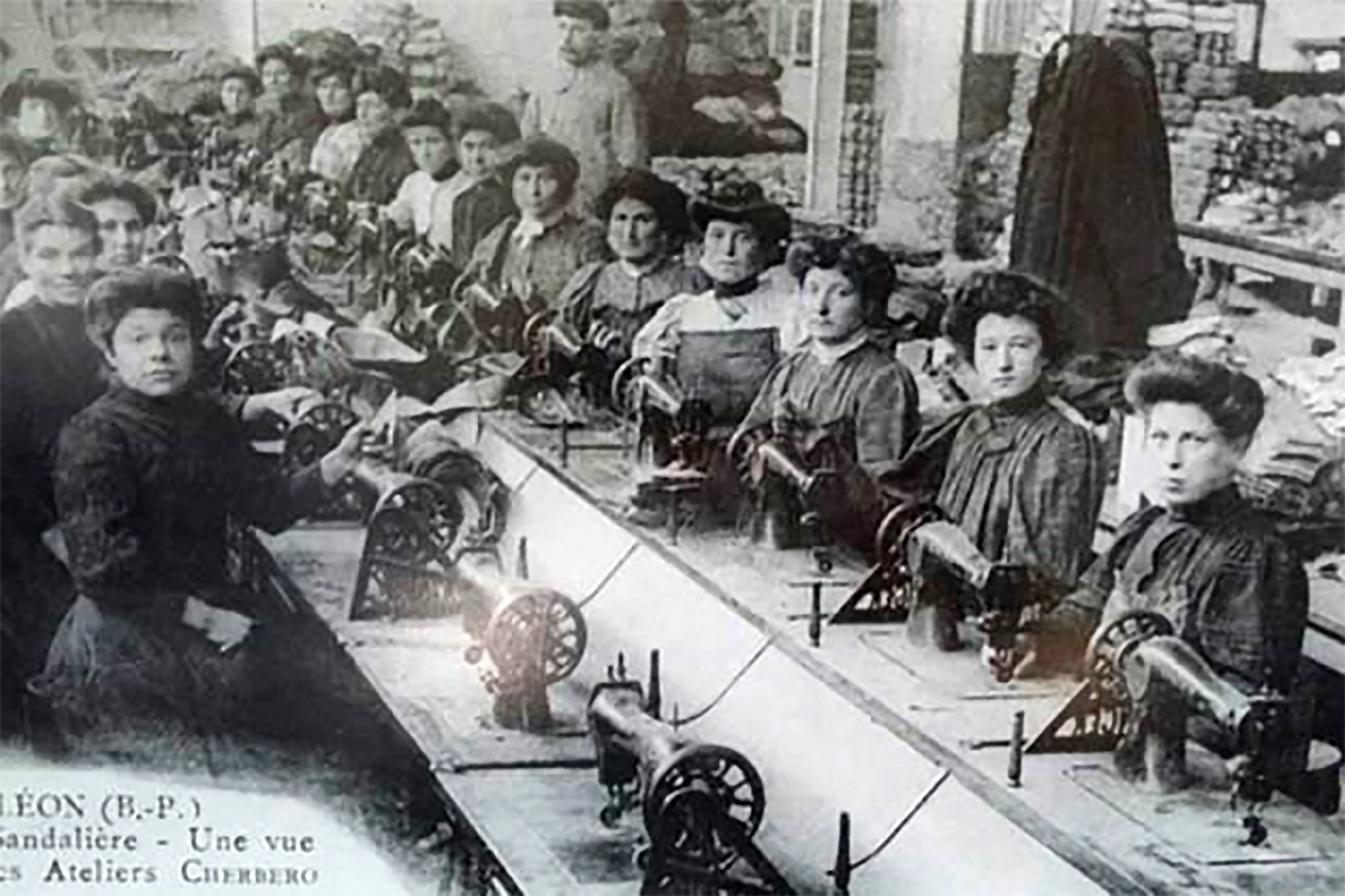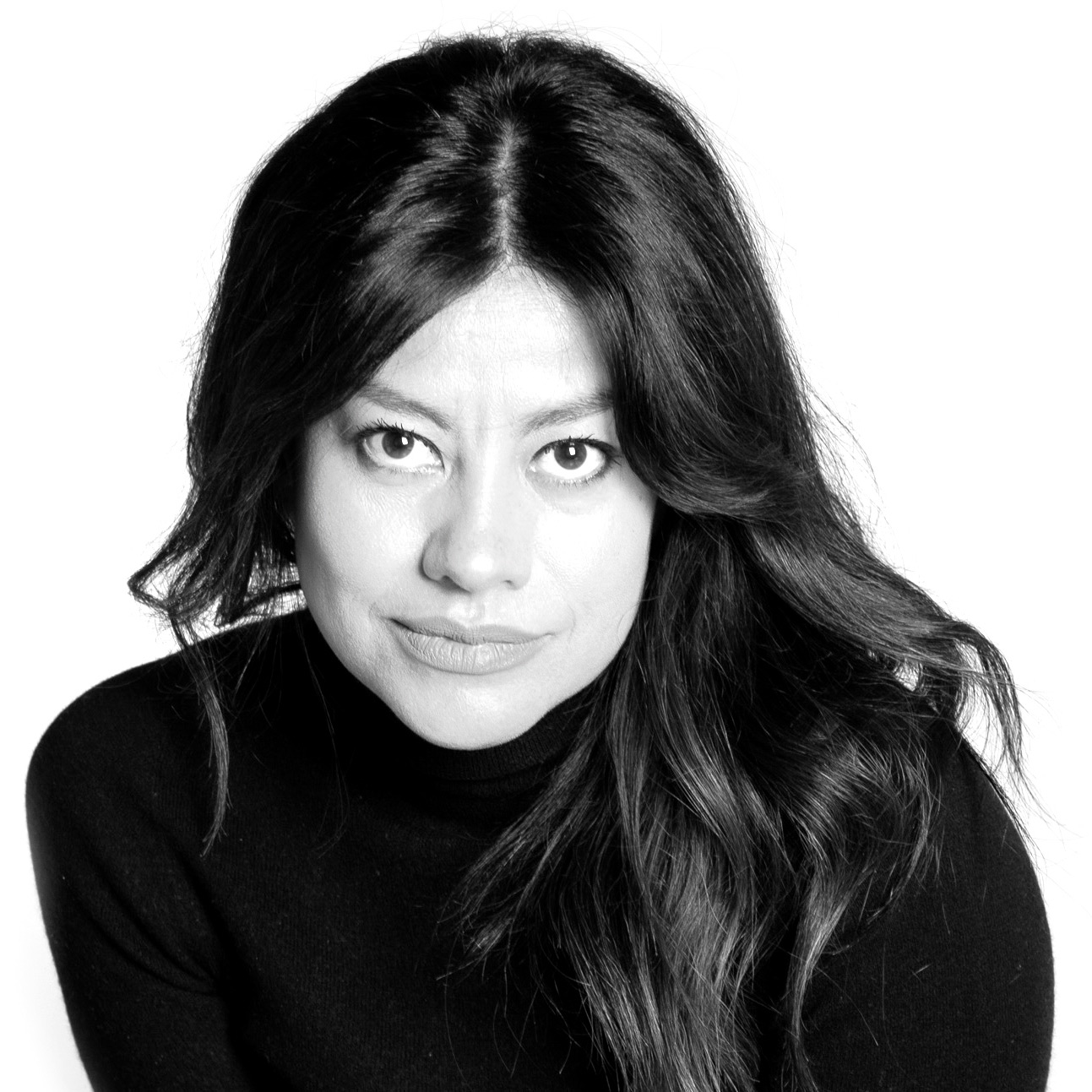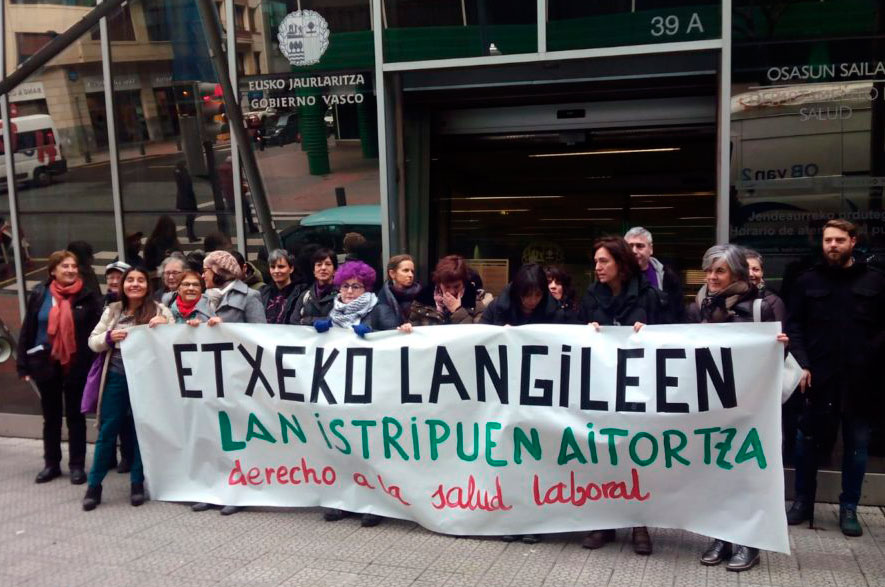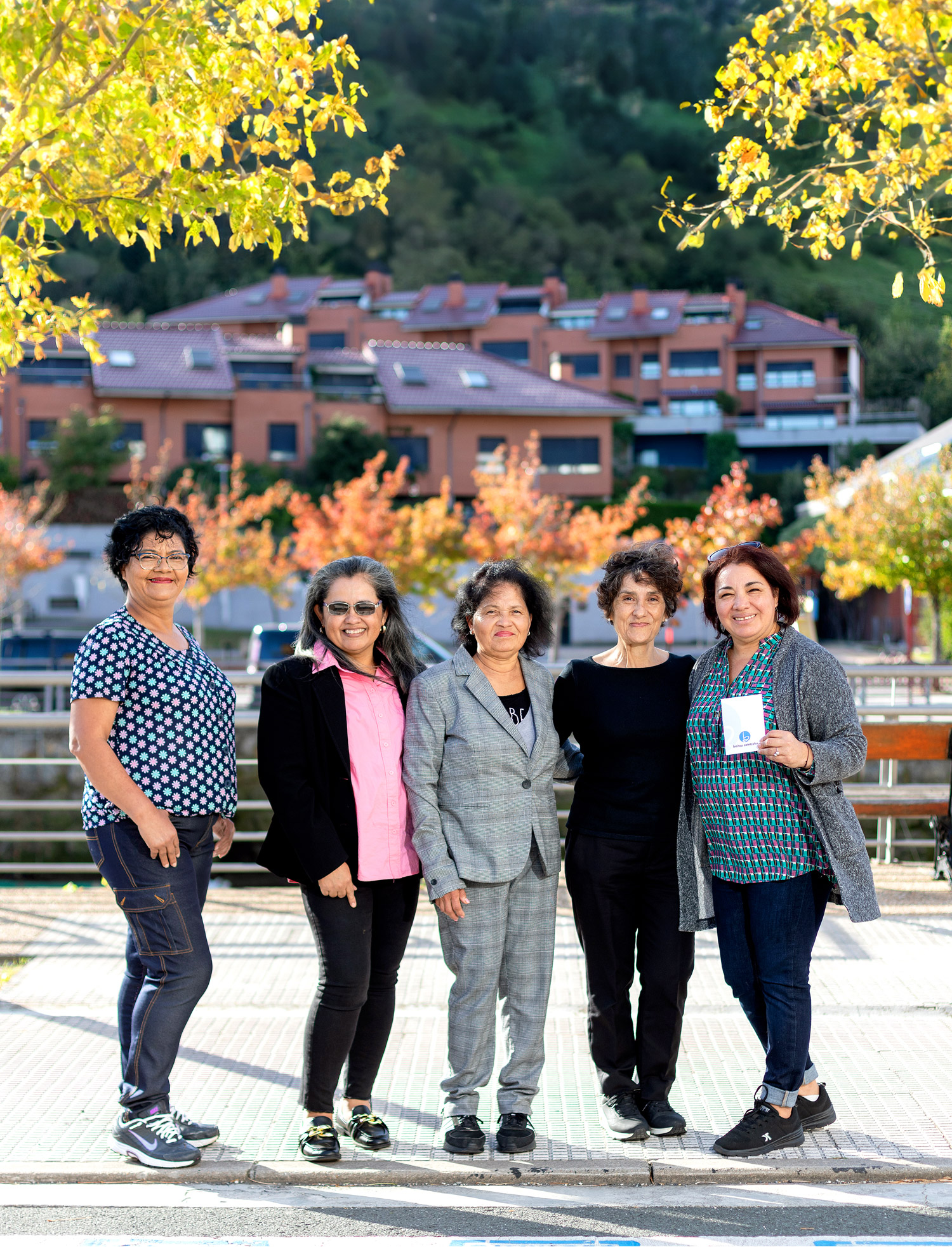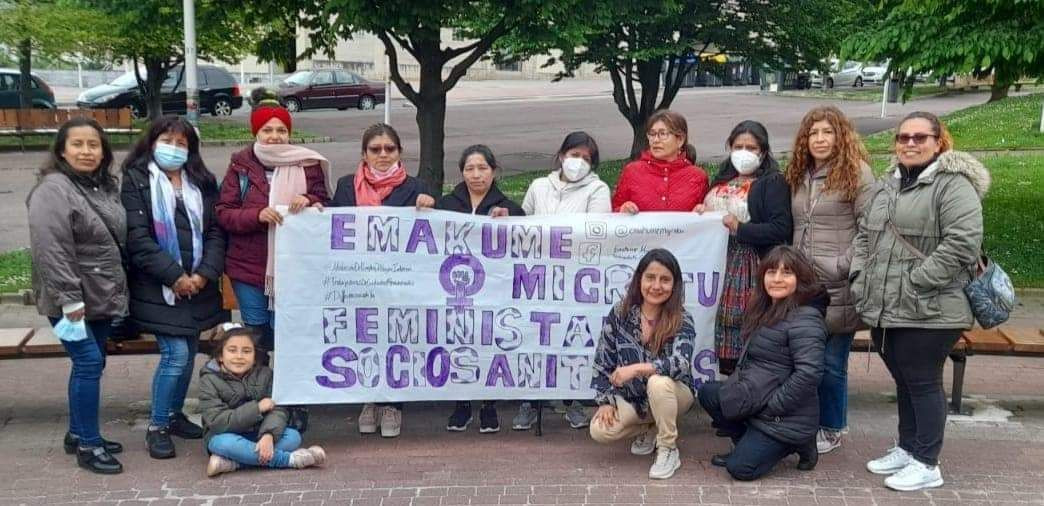"I won 600 euros and kept 50, the rest to Paraguay."
- He came to work from Paraguay in 2005, with the intention of paying for university studies there to his two children. He worked, he earned money, the two of the house did their studies. Meanwhile, he married the Basque, got fired... Widow in October. It wasn't three weeks ago that I had come back to America forever.
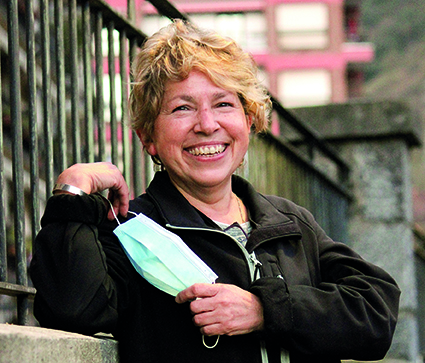
Jaio zen hirian hazia, ezkondu eta New Yorkera egin zuen, bi haurrekin, senarra haraxe joan baitzen lanera. Gizonak abandonatu zuelarik, etxera itzuli zen, Asunciónera beti. Zortzi urtez lan egin eta, lana galdu, eta Espainiara joan zen, 2005ean, lanean beti. 2007an heldu zen Euskal Herrira, eta bertakotu zen. Bere gizonezkoarekin bizi zen, harik eta hil arte. Bakarrik, noragabe, atzera etxeko habiara egin du hegazti migrariak. Guraso eta seme-alabekin da Asunciónen, ongi, jakinarazi digunez.
Fifteen years between us, and I've been told to leave.
Yes, to Asunción, to Paraguay, because I am a charm. Three weeks ago my husband died. At first I didn't know what to do, but soon I realized: I was attached to my husband, without him I do nothing here, I'm not working or eating... I've lost you seven kilos in three weeks. I'm lost, no way... I'd better leave. I decided to go home. I leave. I arrived fifteen years ago. I didn't come by my own will, I came because I needed to make money, so that my two children could learn ...
Had you left your country until then?
Yes. What is the life experience... I married twenty-one years old. We had two children. The father went to work in New York, as the eleven Paraguayans do. After a year, he sent us to the three banknotes and I took my two children and went to New York. I was there six years. One day, her husband left the house and didn't come back. He abandoned me, left me alone with our two children in Queens. The daughter was three years old, son five. He called his house and my father said to him, “Everyone come home, all three!” He bought us tickets, sent us and returned to Asunción. My husband reappeared within twenty years. The daughter did not know who she was and the son did not want to see her in the eyes. The boy was terribly offended.
And back to Asunción, what life did you do?
They came home and the kids had to study. And where to take them? “Mother, public school or private school?” I asked. But there was no public school in our neighborhood. My mother had ordered me to go and ask the private school next door. Sister Eusebia was Palomino College, Salesians were nuns. I left and talked to the director. It was what he sent me to call a few years later! Sister Justa Pavetti. I'm still in touch with him! The man who just died knows and waits for me... When I told her my story the first time, she said: “Do you want to work?” “Yes, that’s what I want, work! I'm rabid! And I also want my children to learn.” Then Sister Justa: “Now we need a goalkeeper. Would you accept the position?” I settled without moving. And so on.
So what made you come to our party?
I worked eight years at school, and my kids were studying right there. They finished their studies and they didn't renovate me. However, I was compensated. However, I asked Sister Justa: “And what do I have to do now? I want my children to have college education and you have to pay them!” She says: "Would you like to go to Spain?" We have a nun here in Madrid and it is not possible for me to contact her. He will surround you with the work.” And that's how I came. First, to Madrid. The nun stood up and waited for me.
And what work have you done in Madrid?
Domestic worker in the home of a family in Majadahonda (Madrid, Spain). They were husband and wife, with two young children. That's why they wanted me the lantern. There they spent the year and they changed their jobs, and I had to go to another house, always the home, to Cuatrocaminos (Madrid, Spain). I was in that second house for a couple of years, until the woman I was caring for died. I had an Alzheimer's, I was aggressive, but I learned to steer it. I just wanted to get out. I was always in it. At all costs, I wanted to leave the house! ==Death==He died at age 92. My name was put on the scene, next to a line of relatives who were very grateful.
When did you come to Euskal Herria?
So! Without work I called the nun of Paraguay and she said: “Here I have my nephew, get in touch with him.” His nephew was in San Sebastian! Tolva. I called and said, “Come to the next game!” I was up the sky and down the earth, I wanted to work, and I called Olga. “But, Olga, where are you, where is San Sebastian?” She says: “Here too is Spain, but it is in the north, on the border with France. And that's how I came here.
I wanted to work ...
Yes, of course! And two months after I came to Donostia, I started in Donostia with a Basque who was called Arantxa, in a house in Miraconcha. That family, with the name of... There I had to take care of an old woman. I was 101 years old! I would go home in the morning and stay until four or five in the afternoon. I lived in an apartment with four or five girls... One day, phone call. A man on the other side of the line. He immediately realized he had the wrong number, but we got to talk for a while. It was July 2007. Since then, we talked over and over on the phone until we decided to see each other.
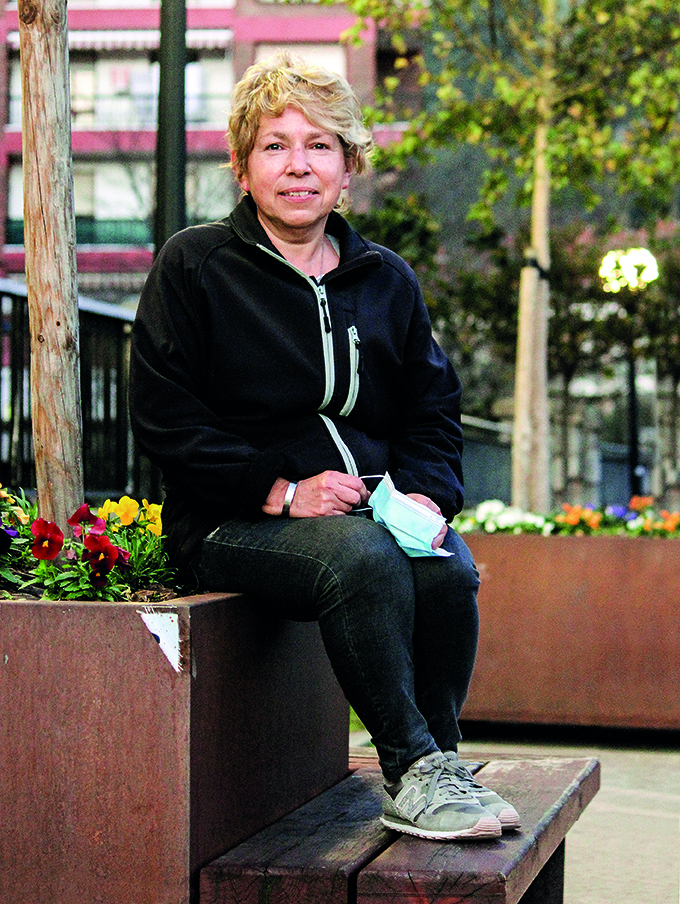
A love story...
That is true! We first saw ourselves in the Good Shepherd's Square, where I was going to pray, because I'm very believer. I waited, and the pocket hit. As soon as I took it, there appeared before me a man whom I knew only by the voice of the telephone, a man with whom I was going to have a husband, although we did not marry, because we agreed. Then, with him, I came to Azpeitia, took several courses and trained in the care of the elderly. Of course, Castilian predominated in Donostia-San Sebastian, but here (Azpeitia) the Basque country. Despite everything, I did.
Did he come from Paraguay, learned in Basque? What do we do in Spanish?
All right! I don't know Euskera, although I understood him when man spoke to me, perhaps because he also tried to get me to understand him. The same happened to the woman I was caring for, Joxea. I spoke Spanish with difficulty and I adapted to it. I liked it. Joxepa, I mean. When I had a head tilt, I didn't want to be disappointed. He told me he wanted. I had surgery, and I had to recover. And I remember the way I walked again, holding the man in my arm ... Two months lasted until I became stronger. I said to the man, “Quite a lot. I feel like I can work. I'm leaving, Joxepa is also waiting for me." Joxepa waited me two months!
You told us you had a bias...
2008. We took it in genes because our grandmother couldn't support it either. Thank God, I recovered, despite some small visual setbacks. Some people will think it was hard and hard, but the worst is always nostalgia, not seeing those at home. At first it cost me a lot of work. Nostalgia is terrible. Today the people in the pocket are always there and it hurts me so much that I have not failed even once in my house. I had to go home at two in the morning, Sunday, anywhere, so I could talk to my family. How their parents were, how their children were..., what need I had to know! The weekend before my husband's death, he told me: “You’re sad!” And indeed, Christmas was approaching, and sadly, because for me it is an extraordinary month, this nostalgia is increasing in me. But I leave, there I will spend Christmas, as not long ago.
What are you going to leave behind when you leave?
I had Patxi here, my man. When he died, I have nothing, I am empty, out of place, out... I'm missing him. When he lived, he would leave work and go home. I knew I would have it there. I like the house, but I didn't want it to lose the company and we'd leave it so it wouldn't get away from my friends. We went out, we took one or two stockings of wine, we ate something ... Sometimes, we went to San Sebastian, because I like the city. We were walking around Urgull on the beach, always holding hands. That's what they were telling us. “You are from the old school, always holding hands!” Let it be true!
At the very least, your goal has already been met.
I came to work so my children could do college studies, and they've done those studies already! Ten years ago they finished their studies! They didn't need anyone next to them, or above them, for a study. Like I don't. My father said nothing more to me in his day: “Study, study, study!” My children have not needed these kinds of keyboards. They knew that I was here, working hard and that they also had to work hard. Look, when I arrived in Madrid, I was earning 600 euros in that first house. Then 800. Of that money, I kept 50 for myself just for weekend coffee. The rest, I sent him home! There, as here, you have to pay everything.
Goodbye, but goodbye?
Goodbye and not goodbye. Many will say: “It’s gone fast!” And it's true, fast, but it's also true that I don't want anything. I've lost seven kilos in the three weeks following the death of man. I have no heart for work, no willingness to eat, no pulls to go out... No contentment! What I told my hijastra, when I decided: “I leave, Maite, I pack my bags and I leave. I know it's not, but I can't. Do the necessary paperwork, light, water, gas... unsubscribe in all and I leave”. And Maite said, “Do what you have to do, Constance, we are grateful, you made our father happy, what we saw with our own eyes. Thank you.” But I, who disagreed, said: “Excuse me if I haven’t done more than I have done. Your father saved my life, and I have not been able to save her.” And Maite said to them, “Stanza, you brought your father out of the ground, because he was wrong, and you were happy, we have seen him with our own eyes.” I find the current situation difficult, I love this country, but I feel alone, I cry ... Everyone says they will help me, but everyone has their life, their work and their knots. And the worst thing is, I'm missing a man, he's gone. The same man said to me, referring to the clients: “Yes, everything is laminated, but when needed, no one helps.” I know what it's like. I leave here and leave. It's over for me.
Will you adapt to Paraguay, to the life of Asunción?
As long as it doesn't! I go to my parents' house, my birthplace. It's my house, there we were born all the brothers. Sometimes, it seems to me that I have not left the house, because we have always been in touch. From the phone, I know what's at home at all times of the day, whether my kids are working, or at home, and when my mother is taking the mate, terere... He often calls me, or I call him ... When I'm working, I turn off my phone. Always. I leave, I know that some of it will cost me a job, some easy. I have the grace of God, everything goes well. There is Sister Justa, who has never left my hand, and so I ask my deceased man not to leave my hand: “Take strong hand, Patxi!”
* * * * * * * * * * * *
Guarani “Guarani and Spanish are the official languages! In the rural realm, it's everyday language. At home, we talked in Spanish, but I understand the Guaraní without any inconvenience, because the grandmother knew nothing else, and the parents also speak the Guaraní when they want. His father, for his part, has written a book about the Guarani, which was passion, to gather popular knowledge.”
“There are
many Paraguayans in the United States. Here, little. In Donostia-San Sebastian, in spite of everything, there are quite a few. I don't know. I am very small with my compatriots. One earns 8 euros, the other 6, and impatience! What my father said to me: ‘With those here, go as far as possible’. Because we're a ava, Indians, and we're like that, just envious. That's why I've always cared for my private life. In that I’ve always been very careful.”
“I was
taking care of a woman for ten years. The mistreatment I received! He insulted me, “You have a husband to order,” he told me. I had a crutch and I did everything I could to stick. He was right, but he was a little bad person. I won't say it was bad, but a bit bad. However, let it be on top.”
* * * * * * * * * * * *
LAST WORD
Our interlocutor, Victor Barrios Rojas,
has his father, Victor Barrios Rojas, one of the great names of the history of radio in Paraguay. Journalist and collector of popular knowledge, has carried out numerous works, including the book of interviews with three great writers in Paraguay: Augusto Roa Bastos, José Luis Appleyard and Óscar Ferreiro. He's currently 88 years old.
Maule, 1892. Eight women from the Salazar Valley headed home from the capital of Zuberoa, but on the way, in Larrain, they were shocked by the snow and all were killed by the cold. Of the eight, seven names have come: Felicia Juanko, Felipce Landa, Dolores Arbe, Justa Larrea,... [+]
International Migrants Day is celebrated on 18 December. Last year, an institutional event was held at the Alhóndiga in Bilbao in cooperation with the social partners and I was invited to participate. There I had an unbeatable opportunity to meet new creators and, above all, to... [+]











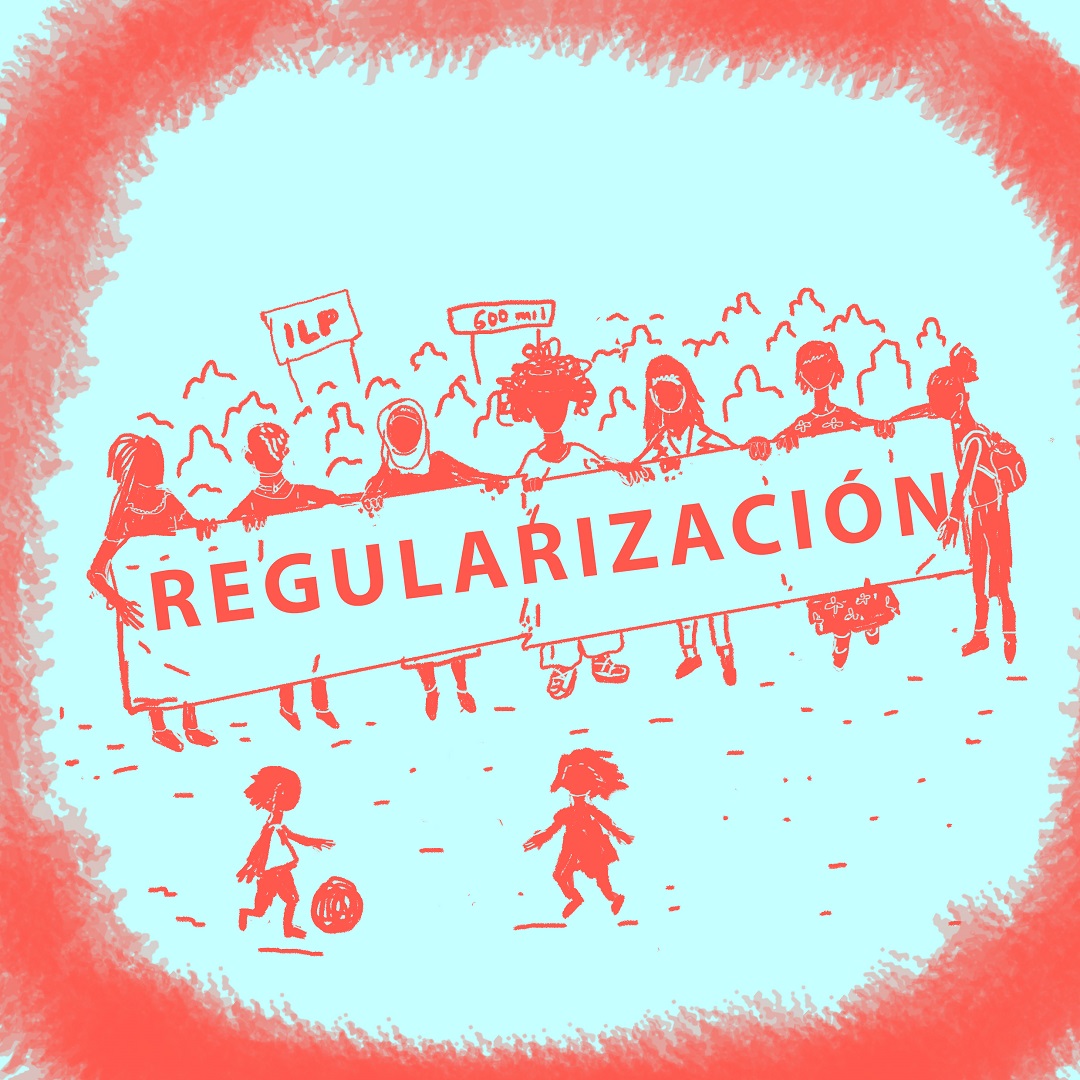
.jpg)
